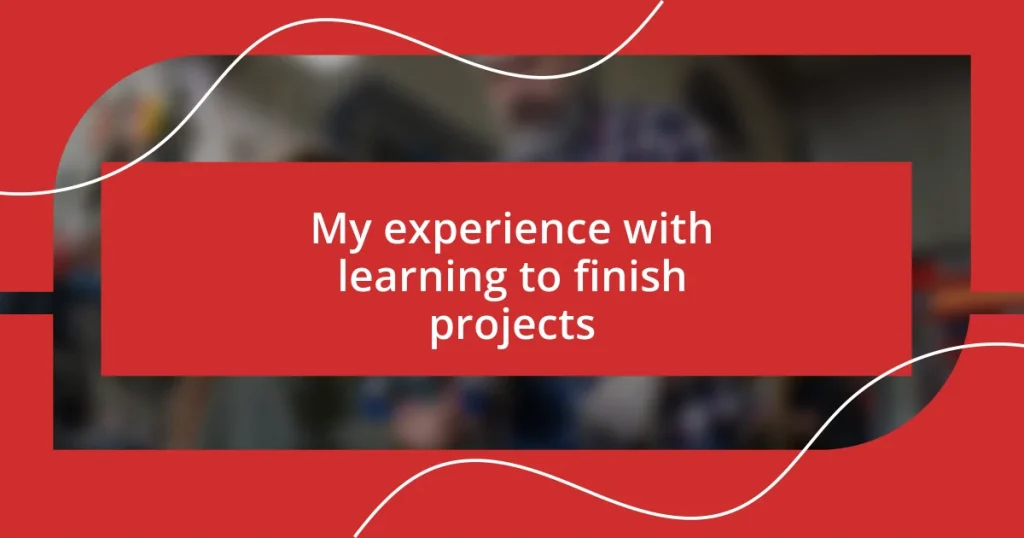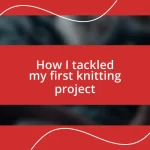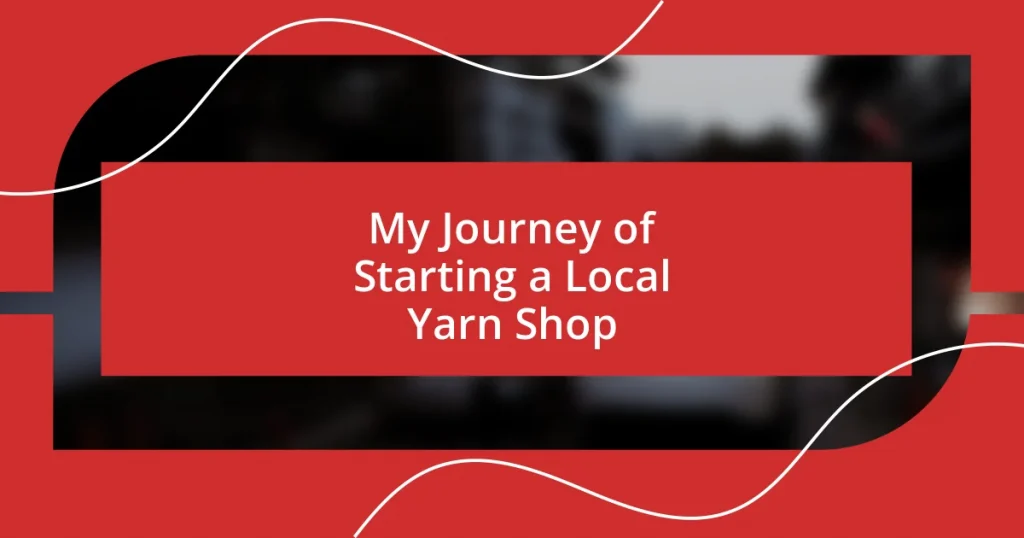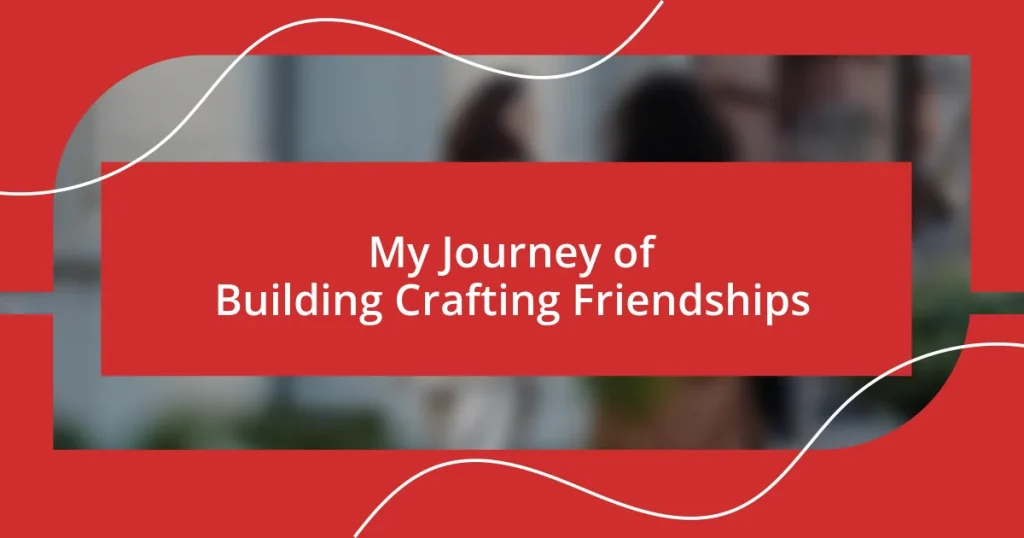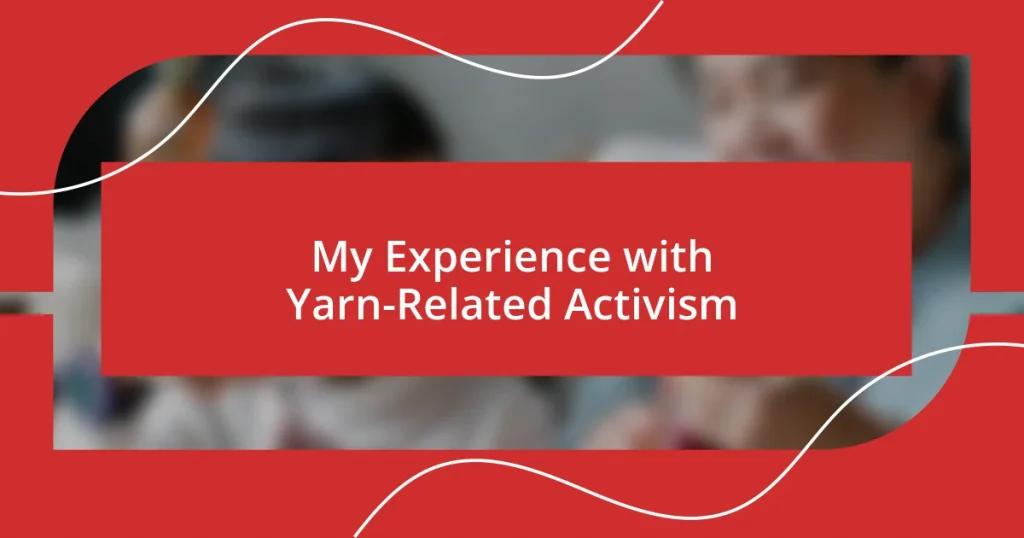Key takeaways:
- Breaking projects into smaller, actionable tasks and using SMART goals enhances clarity and motivation.
- Adopting techniques like the Pomodoro Technique and the Eisenhower Matrix improves time management and productivity.
- Celebrating milestones and reflecting on lessons learned fosters motivation and resilience in the project completion journey.
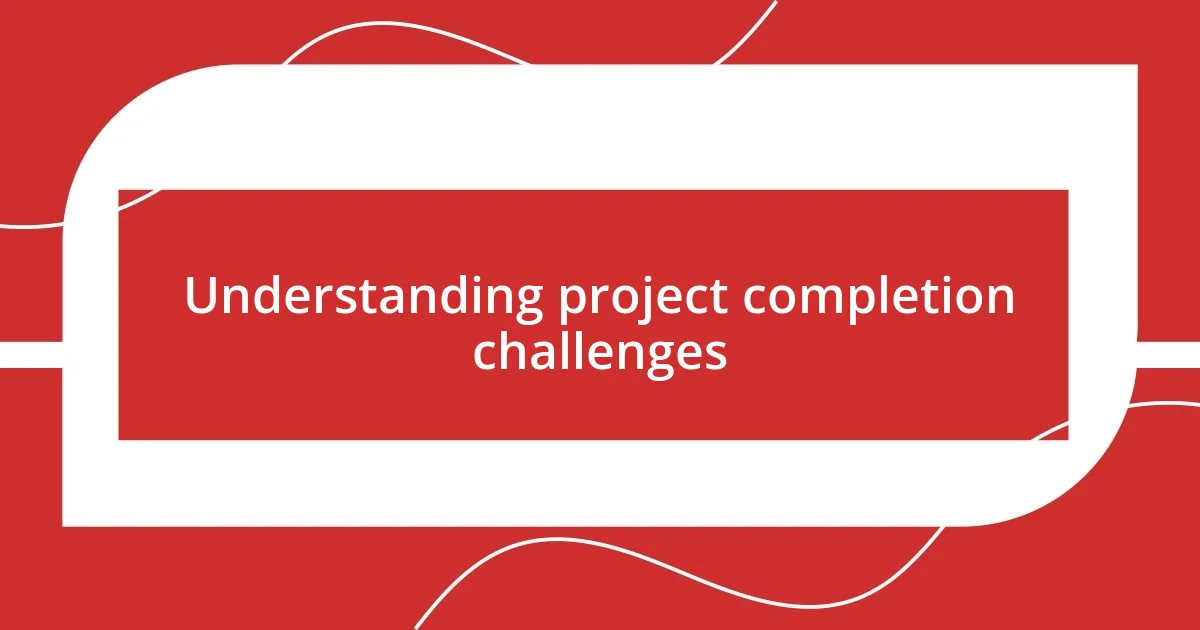
Understanding project completion challenges
One challenge I often faced was the overwhelming feeling of starting a project with grand ideas, only to find myself bogged down by the smaller details. I remember a time when I was passionate about creating a video tutorial series. I envisioned it as an excellent resource, yet I found myself lost in endless planning and perfectionism. Ever felt that pressure to make everything flawless before hitting “record”?
Procrastination always crept in when deadlines loomed too close. It’s almost ironic, isn’t it? I would get caught up in tasks that felt more comfortable, like organizing my workspace instead of tackling the actual project. I’ve come to realize that it’s easy to confuse movement with progress. Have you ever caught yourself doing the same?
Then there’s the emotional rollercoaster of project completion. I vividly recall the excitement I felt at the start of every endeavor, which would slowly convert into stress, especially when things didn’t go as planned. That mix of anxiety and anticipation can be paralyzing. Have you ever felt that fire in your belly turn into a pit of doubt? Understanding these emotional ups and downs has been crucial for me in navigating the completion of projects.
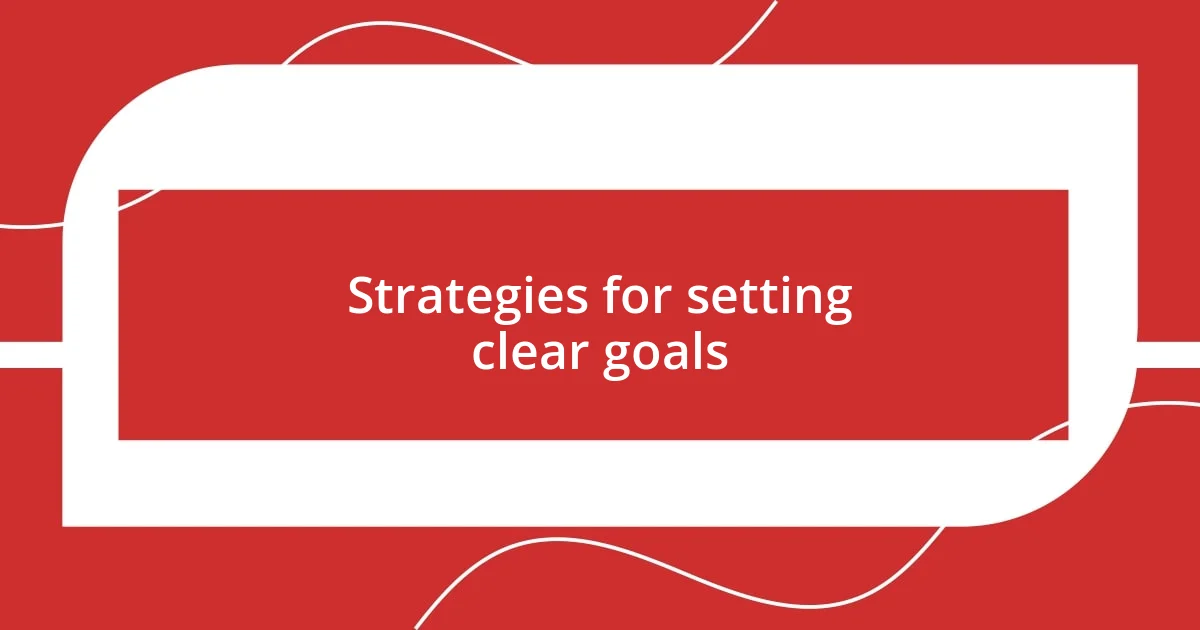
Strategies for setting clear goals
One effective strategy I discovered for setting clear goals is breaking projects into smaller, actionable tasks. Initially, I rolled out a project like it was a massive monolith, which only fueled my anxiety. I remember the day I decided to take on a daunting writing project. Instead of seeing it as a 20-page document, I divided it into sections and set daily targets. This method not only made the task feel less overwhelming, but it also provided me with a sense of accomplishment that kept me motivated.
When you set achievable goals, they should be SMART:
- Specific: Clearly define what you want to accomplish.
- Measurable: Identify how you will determine success.
- Achievable: Make sure your goals are realistic.
- Relevant: Ensure your goals matter to you and align with your broader objectives.
- Time-bound: Set deadlines to create urgency.
Adopting this framework transformed my approach to projects by bringing clarity and structure, allowing me to focus on progress rather than perfection.
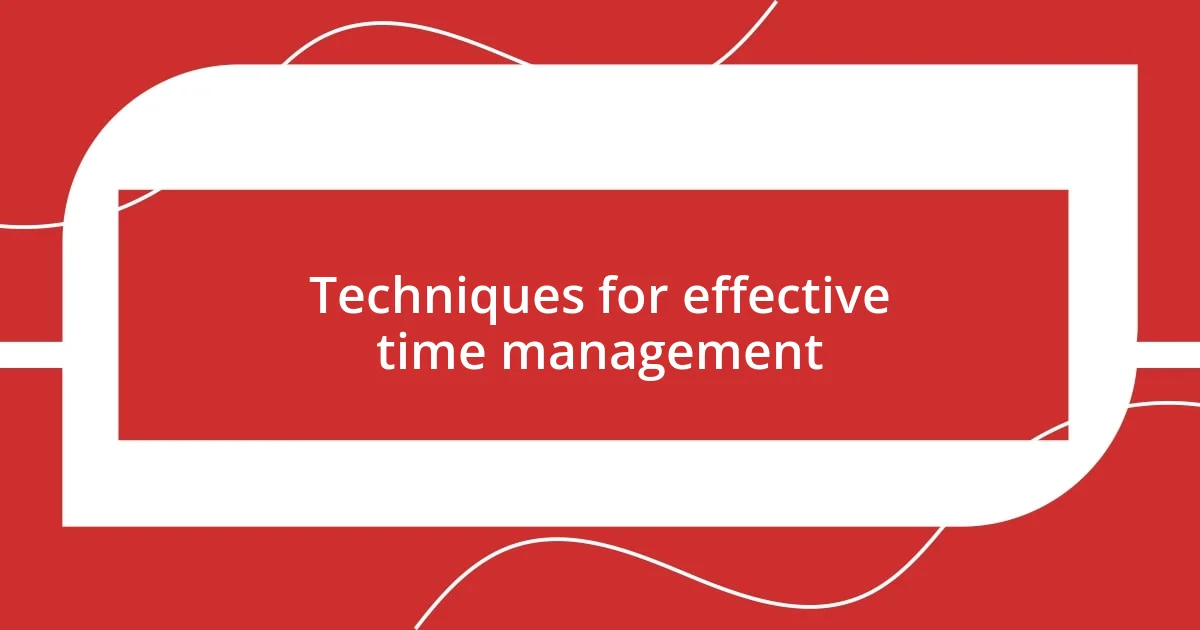
Techniques for effective time management
One technique that worked wonders for me in managing my time effectively was the Pomodoro Technique. I often found it challenging to stay focused for extended periods. However, breaking my work into 25-minute bursts of concentration followed by a 5-minute break transformed my productivity. This method not only kept my mind fresh but also made daunting tasks feel manageable. Have you ever noticed how taking short breaks can reenergize your focus?
Another useful strategy is prioritizing tasks using the Eisenhower Matrix. This approach categorizes tasks based on urgency and importance. In my experience, it helped me distinguish between what truly mattered and what was just noise. I vividly recall a day when I had multiple projects on my plate. By placing them in the matrix, I quickly identified the tasks that required immediate attention versus those I could tackle later. This clarity allowed me to allocate my time wisely and reduce stress levels significantly.
Finally, leveraging digital tools for time management made a huge difference. I experimented with various apps to track my deadlines and set reminders. I fondly remember discovering a task management app that sent me gentle nudges when I procrastinated. Seeing notifications pop up felt like having a friend cheer me on to keep going. Tools like these have been invaluable in enhancing my productivity and ensuring I stay on course with my projects.
| Technique | Description |
|---|---|
| Pomodoro Technique | Work in focused bursts followed by short breaks to maintain concentration. |
| Eisenhower Matrix | Prioritize tasks by urgency and importance to focus on what truly matters. |
| Digital Tools | Use apps and reminders to keep track of tasks and deadlines efficiently. |
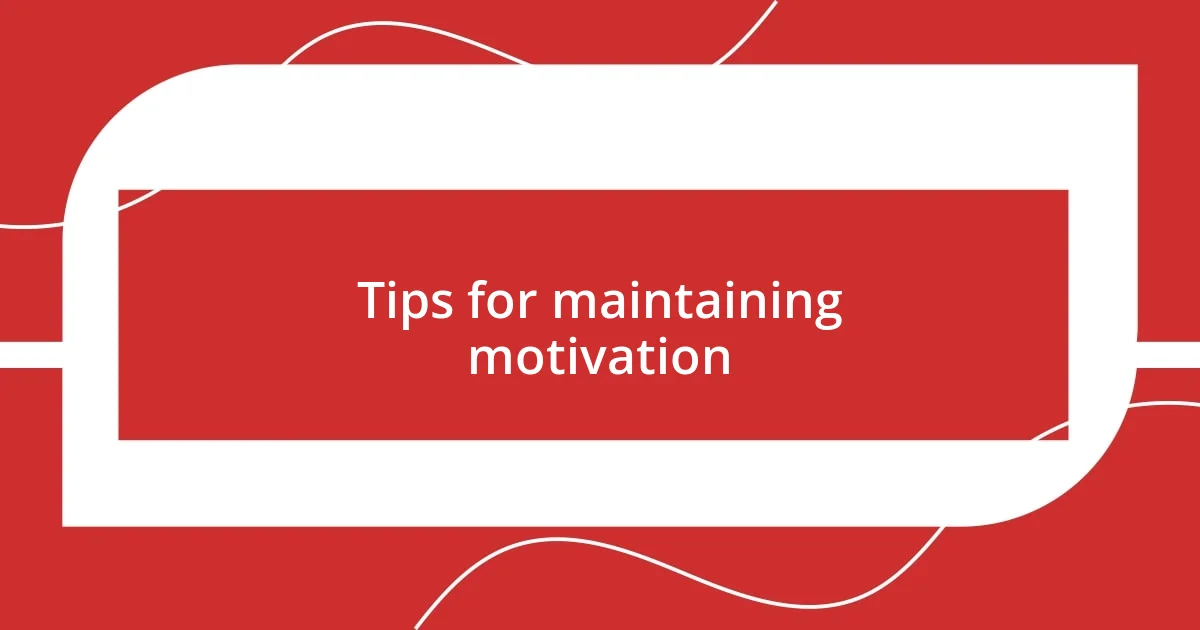
Tips for maintaining motivation
To maintain motivation when tackling projects, I’ve found that mixing up my work environment can lead to refreshing shifts in energy. One time, I decided to take my laptop to a cozy café instead of my usual desk setup. That change of scenery not only sparked creativity but also made the task feel like a fun outing rather than just another day at work. How often do you find yourself stuck in the same routine? Sometimes, a little change can reignite your passion.
Celebrating small wins is another powerful motivator. I remember wrapping up a challenging section of a report and treating myself to my favorite dessert. It sounds simple, but that small act of acknowledgment created a positive feedback loop that propelled me onward. Isn’t it funny how rewarding yourself for progress can turn a tedious process into a more enjoyable journey? Incorporating this practice into your routine can transform how you feel about your projects.
Lastly, I can’t stress enough the importance of surrounding yourself with supportive peers or even joining groups focused on similar projects. I once joined an online community where members shared not only their goals but also their hurdles. The encouragement I received helped me push through the tougher days. Have you ever felt uplifted by a simple word of support? Being part of a vibrant network not only reinforces your commitment but also makes the journey feel less lonely.
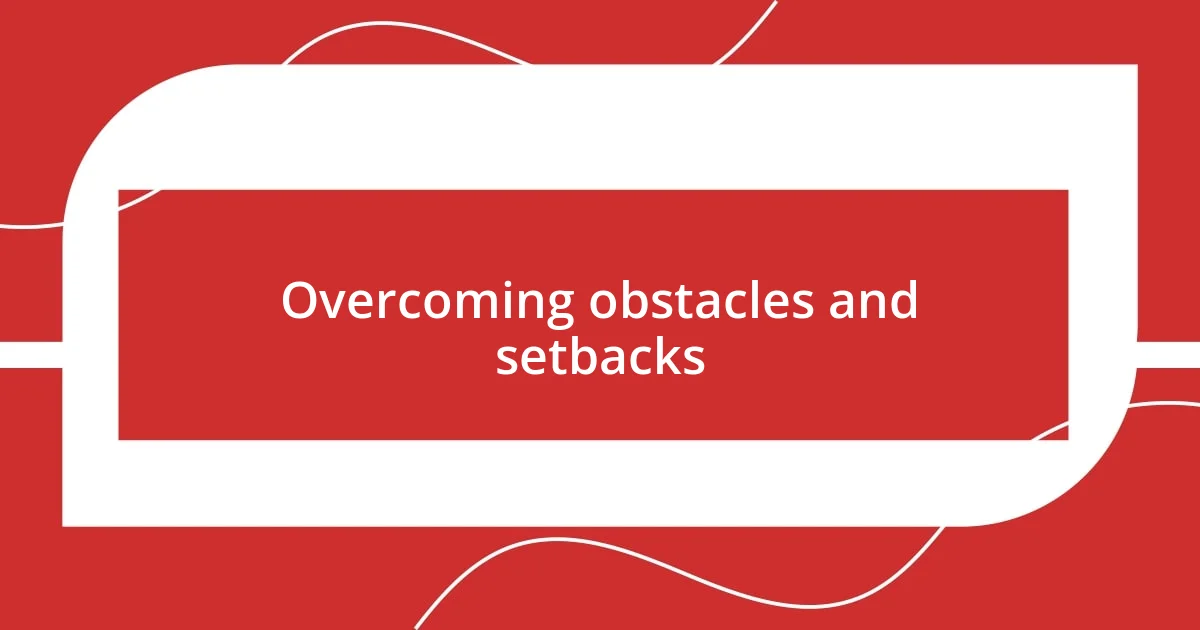
Overcoming obstacles and setbacks
Facing obstacles in completing my projects has been a significant part of my learning journey. I recall a particular incident where I hit a wall while trying to put together a presentation. The deadline loomed, and my ideas felt scattered and unpolished. Instead of succumbing to frustration, I took a deep breath and stepped away for a brief walk. That simple act of putting some physical distance helped clear my mind. Have you ever noticed how movement can spark new ideas? Returning with a fresh perspective allowed me to approach the project with renewed resolve.
Setbacks often come hand-in-hand with self-doubt. While working on a personal project, I received negative feedback that stung deeply. I remember feeling disheartened and questioning my abilities. However, I realized, through reflection, that criticism could be a tool for growth. Instead of letting it discourage me, I chose to break down the feedback into actionable steps. Has there been a moment when criticism led you to improve? I learned to look at setbacks as lessons rather than failures, which has transformed my outlook on challenges.
Sometimes, it’s about adjusting my framework when things don’t go as planned. There was a period when I committed to a project only to find that the original idea didn’t resonate as I had hoped. Feelings of disappointment crept in, and my motivation dwindled. Rather than forcing it to fit, I decided to pivot the concept, infusing it with elements I was genuinely passionate about. This shift not only reignited my enthusiasm but also led to a much more compelling outcome. Have you ever felt the urgency to adapt? Embracing flexibility has proven invaluable in overcoming the hurdles I face, reminding me that sometimes the best results come from embracing change.
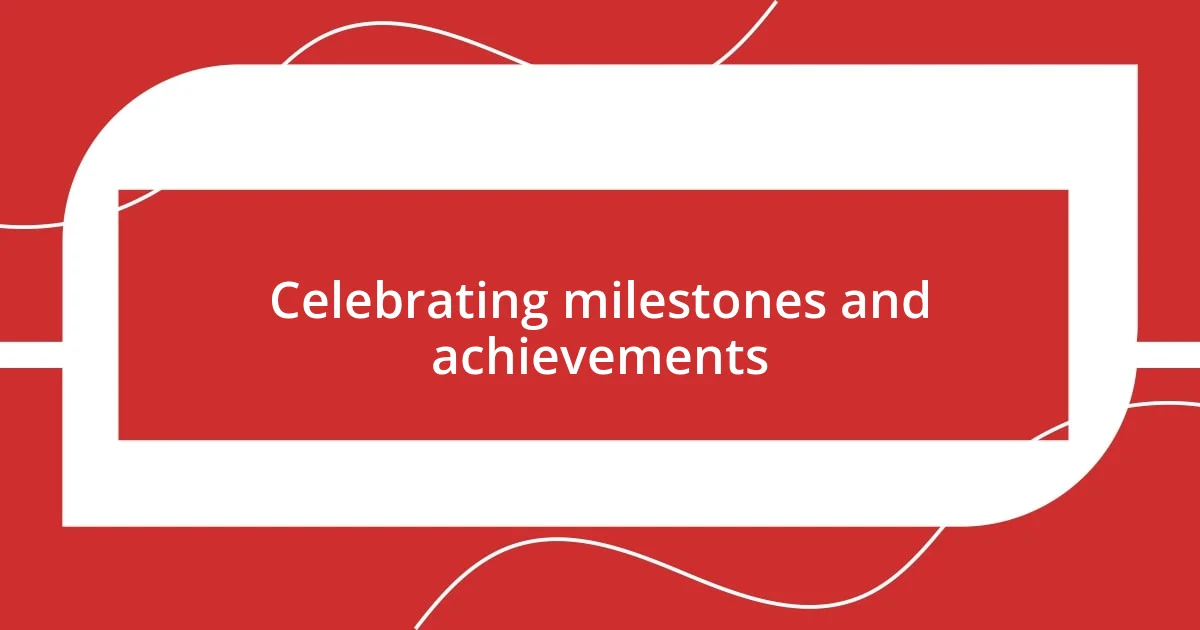
Celebrating milestones and achievements
Reflecting on my journey with project completion, I’ve discovered the joy of celebrating milestones, no matter how small. I vividly remember the day I finalized the first draft of my book. Instead of just calling it a day, I invited a couple of friends over to share in the moment. We toasted with sparkling water, and I felt such a rush of pride! Have you thought about how sharing your achievements can amplify their significance? Those moments reinforce the satisfaction of progress and remind me that every step forward deserves recognition.
Another time, after successfully launching a project I had nurtured for months, I decided it was time for a real treat. I booked a spontaneous weekend getaway, and the thrill of celebrating my hard work in a new place was invigorating. I felt like I was gifting myself a well-deserved break, allowing me to recharge my creative juices. Have you felt that sense of liberation when taking time off to celebrate? It’s amazing how stepping away can generate renewed energy and clearer insights for future projects.
The act of recognizing achievements is also a way to maintain motivation. I keep a journal where I jot down my accomplishments, big or small. Whenever I skim through them, it floods me with joy and inspiration. Last week, I looked back at my entries and realized just how far I’ve come. Isn’t it fascinating how documentation can serve as a reminder of our journey? Seeing tangible proof of progress helps keep the fire burning within, encouraging me to push even harder on my next endeavor.
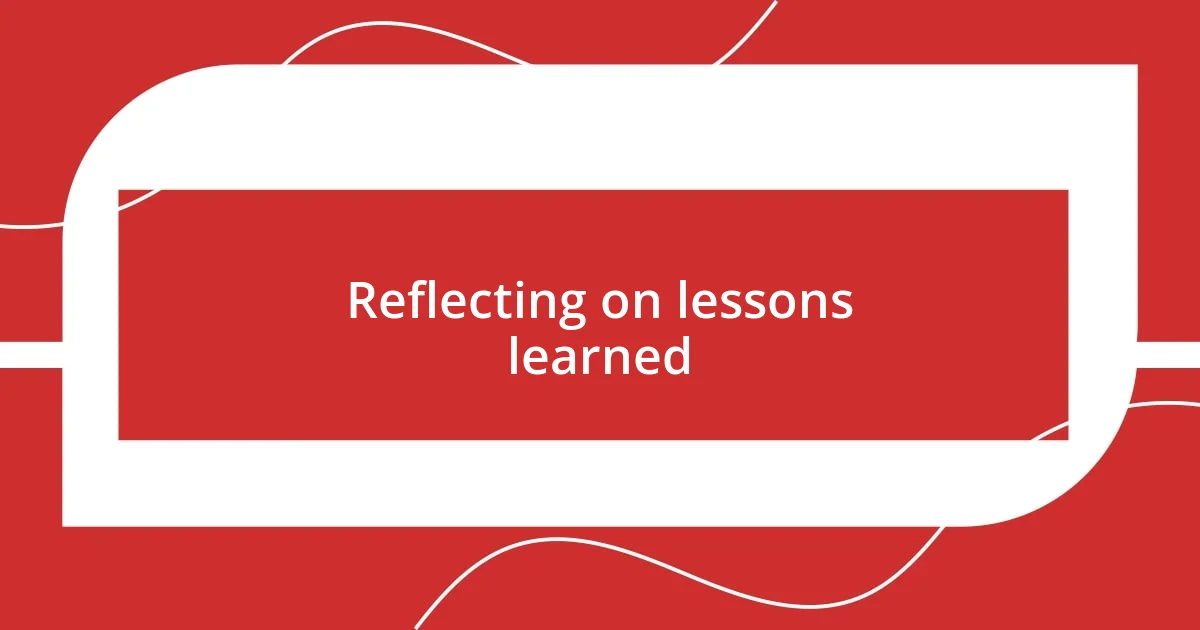
Reflecting on lessons learned
Reflecting on lessons learned has truly reshaped my approach to completing projects. I recall a time when I was knee-deep in research for a project that seemed endless. Each time I would hit a snag, I would remind myself to pause and consider what that obstacle was teaching me. It wasn’t always easy, but I began to realize that every challenge offered a nugget of wisdom. Have you ever experienced a situation where a roadblock turned into a revelation? For me, those reflections became mini breakthroughs that informed my next steps.
In another instance, while working on a digital art piece, I struggled to find my creative voice. After grappling with frustration for hours, I decided to take a moment to reflect and journal about what I truly wanted to express. That moment of introspection allowed me to reconnect with my motivations and ultimately led to an artwork that resonated deeply with me. Isn’t it interesting how taking a step back can open new vistas of understanding? Now, I make it a habit to carve out reflection time, viewing it as an essential part of my creative process.
Through this journey, I learned that every project is an opportunity to evolve. I’ve started embracing mistakes as innovation in disguise—I can’t tell you how many times I’ve looked back on what initially felt like failures and realized they were the very catalysts that pushed me to think creatively. Have you considered how your past missteps might be paving the way for your future successes? Reflecting on these moments not only builds resilience but also fuels my passion for completing projects that truly matter to me.










